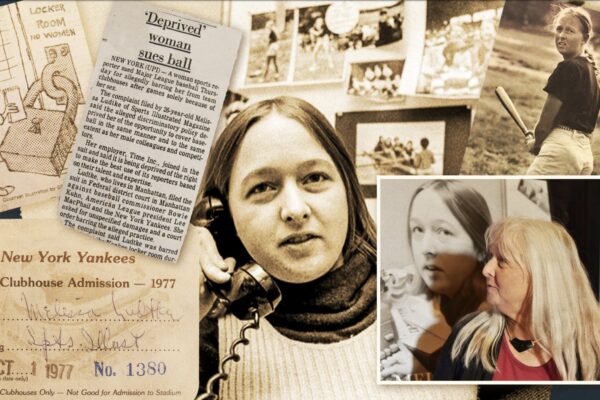By Joshua Miranda
Sports Capital Journalism Program
INDIANAPOLIS — “In 49 other states, it’s just basketball,” Indiana Pacers coach Rick Carlisle had said after his team clinched a spot in the NBA Finals. “But this is Indiana.”
It’s a sentiment so deeply woven into the basketball culture throughout the state that hearing just part of it fills in the rest. So when a sea of gold packed Gainbridge Fieldhouse for Game 3 of the NBA Finals, fans proudly wearing T-shirts that read “BUT THIS IS INDIANA,” it wasn’t hard to predict the crowd’s impact.
And it delivered.
The Indiana Pacers defeated the Oklahoma City Thunder 116–107 to take a 2–1 lead in the NBA Finals. With the victory, the Pacers will enter Game 4 Friday night just two wins from their first NBA championship. Teams that have won Game 3 of a 1-1 Finals series at home have won 66.7% of the time.
In Game 3, Indiana out-Thundered the Thunder, beating them at their own game. Oklahoma City, a team with 81 wins this season across the regular season and playoffs, had built its identity on defensive intensity and a “next man up” mentality. But on Wednesday night, that formula was flipped against them.
Oklahoma City got solid production: 24 points from Most Valuable Player Shai Gilgeous-Alexander, 26 from all-star Jalen Williams, and 20 from Chet Holmgren. The Pacers didn’t just match that offensive output, they added something extra — defense.
The Pacers ranked 17th in points allowed with an average of 115.1 per game. But after a 10-15 start, they had the seventh-best defensive rating in the league. Indiana elevated its effort in Game 3, finishing with 13 steals to six for the Thunder and 11 blocks – five by Myles Turner — to four for Oklahoma City. The Pacers had 50 points in the paint, two more than the Thunder, and outscored them in second-chance points (13-7), fast-break points (17-10), and points off turnovers (21-14).
Everything suggested what the stats confirmed: the Pacers simply outworked Oklahoma City.
T.J. McConnell brought an all-defensive team-level spark off the bench. McConnell posted 10 points, five assists, and five steals, becoming the first reserve in NBA Finals history to hit those marks since steals began being recorded in 1973–74.
He was a game-changer in the second and fourth quarters, repeatedly hounding Thunder ball-handlers and intercepting three inbound passes that led directly to Indiana buckets. His energy turned Gainbridge Fieldhouse into a pressure cooker.
“I think his energy is unbelievable,” Haliburton said. “You guys know he’s definitely a crowd favorite. I joke with him, I call him the ‘Great White Hope.’ He does a great job of bringing energy in this building. And I think people feed off that.”
Bennedict Mathurin followed McConnell’s lead and then some, delivering a breakout performance with 27 points in just 22 minutes, shooting 75% from the field and 67% from three.
It was a historic outing: Mathurin became only the third player since 1990 to score at least 27 points in an NBA Finals game before turning 23. The other two? Kobe Bryant and Kawhi Leonard. Mathurin will turn 23 on June 19, which could be the day of a Game 6. He also became the first Pacer in this series to score 20 or more, and outscored the entire Thunder bench, which had been pivotal in Game 2 but was limited to 18 points.
Earlier in the playoffs, Mathurin set the NBA record for fewest minutes played to reach 20 points in a postseason game. On this night, he recorded the most points in a Finals game by any player logging fewer than 23 minutes since 1954-55, the start of the shot clock era.
Just a year ago, Mathurin’s season was cut short by a torn labrum in his right shoulder, costing him the 2024 playoffs.
“It was crazy,” Mathurin said of his journey. “A lot of people enjoy playing basketball, but I really love playing basketball. Me not being able to play, I would’ve done anything to be on the court, but I couldn’t. So I just tried to learn the game and improve as much as I could.”
Turner’s five blocks gave him a career playoff total of 124, surpassing Jermaine O’Neal for the most in franchise history. The Pacers became the first team to have one player with at least five steals and another with at least five blocks since the Philadelphia 76ers in Game 1 of the 2001 Finals, when Allen Iverson had five steals and Dikembe Mutombo had five blocks.
And then there were the stars.
Pascal Siakam finished with 21 points, six rebounds, four assists, two steals, and a block. He was the early offensive spark, setting the tone in the first quarter and preventing the Thunder from gaining separation.
Tyrese Haliburton, sometimes criticized for his pass-first style, responded with a near triple-double: 22 points, 11 assists, and nine rebounds. He added two steals, a block, and a few strong defensive sequences against Gilgeous-Alexander.
Despite the calls for more aggression, Haliburton’s efficiency has been undeniable. With each Finals game, his scoring has climbed, and Indiana remains undefeated this postseason when he scores more than 20 points.
As for the Thunder, they’ve been here before.
Down 2–1 to the Denver Nuggets in the second round, they clawed back and won that series by solving Denver’s game plan. So far in these playoffs, Oklahoma City has yet to lose back-to-back games, a sign that Game 4 could bring a renewed sense of urgency.
“We’ve got to apply that pressure back, especially if you want to beat a team like that on the road,” said Gilgeous-Alexander, who was limited to one basket on three shots in the fourth quarter. “You’ve got to be the more forceful team, for sure.”
Can the Thunder bench bounce back? After a dominant showing in Game 2, they were outscored and outplayed in Game 3.
We won’t have to wait long to find out.


